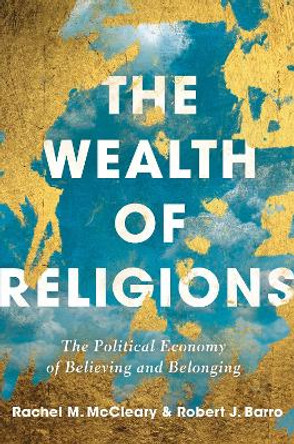Description
Longlisted for the Financial Times and Schroders Business Book of the Year Award
A novel economic interpretation of how religions have become so powerful in the modern world
Religion in the twenty-first century is alive and well across the world, despite its apparent decline in North America and parts of Europe. Vigorous competition between and within religious movements has led to their accumulating great power and wealth. Religions in many traditions have honed their competitive strategies over thousands of years. Today, they are big business; like businesses, they must recruit, raise funds, disburse budgets, manage facilities, organize transportation, motivate employees, and get their message out. In The Divine Economy, economist Paul Seabright argues that religious movements are a special kind of business: they are platforms, bringing together communities of members who seek many different things from one another-spiritual fulfilment, friendship and marriage networks, even business opportunities. Their function as platforms, he contends, is what has allowed religions to consolidate and wield power.
This power can be used for good, especially when religious movements provide their members with insurance against the shocks of modern life, and a sense of worth in their communities. It can also be used for harm: political leaders often instrumentalize religious movements for authoritarian ends, and religious leaders can exploit the trust of members to inflict sexual, emotional, financial or physical abuse, or to provoke violence against outsiders. Writing in a nonpartisan spirit, Seabright uses insights from economics to show how religion and secular society can work together in a world where some people feel no need for religion, but many continue to respond with enthusiasm to its call.
About the Author
Paul Seabright teaches economics at the Toulouse School of Economics, and until 2021 was director of the multidisciplinary Institute for Advanced Study in Toulouse. From 2021 to 2023, he was a Fellow of All Souls College at the University of Oxford. His books include The War of the Sexes: How Conflict and Cooperation Have Shaped Men and Women from Prehistory to the Present, and The Company of Strangers: A Natural History of Economic Life (both Princeton).
Reviews
"Longlisted for the Financial Times and Schroders Business Book of the Year Award"
"Winner of the Bronze Medal in Business Commentary, Axiom Business Book Awards"
"Seabright has produced an engaging and insightful book, which I found myself pondering long after I had read the last page."---Jane Shaw, Financial Times
"Enlightening." * The Economist *
"[A]n insightful and enjoyable read. [Seabright's] platform view makes for a fresh look at religious organizations. I suspect that all scholars of religion economics will find the book equally insightful. For those less familiar with the economics of religion, the book is also an easy-to-read launchpad to the field. . . it will enthuse broad-minded social scientists as well. Finally, since the book addresses 'big questions' in an accessible and engaging style, it will also be of interest to nonspecialists."---Sascha O. Becker, Journal of Economic Literature
"Seabright has a great talent for addressing original questions. In this book, he reverses the familiar trope that religion is the antithesis of mere economics. On the contrary, he argues, religions are competing businesses: they attract people by providing services they value, from the mundane - a community in which to find a compatible mate - to the sublime - a sense of life's meaning."---Martin Wolf, Financial Times
"Combining tough-mindedness and cultural sensitivity, Paul Seabright may help to bring religion nearer to the mainstream of international political debate."---Jonathan Benthall, Times Literary Supplement
"Refreshing."---Helen Nicholls, National Secular Society
"In The Divine Economy: How Religions Compete for Wealth, Power, and People, Paul Seabright offers a novel economic analysis of religions. He describes them as the original platform organisations, rallying groups of users in mutually beneficial relationships just as Instagram or X do today, and points out how religious and secular groups can work together." * Financial Times *
Book Information
ISBN 9780691133003
Author Paul Seabright
Format Hardback
Page Count 504
Imprint Princeton University Press
Publisher Princeton University Press






